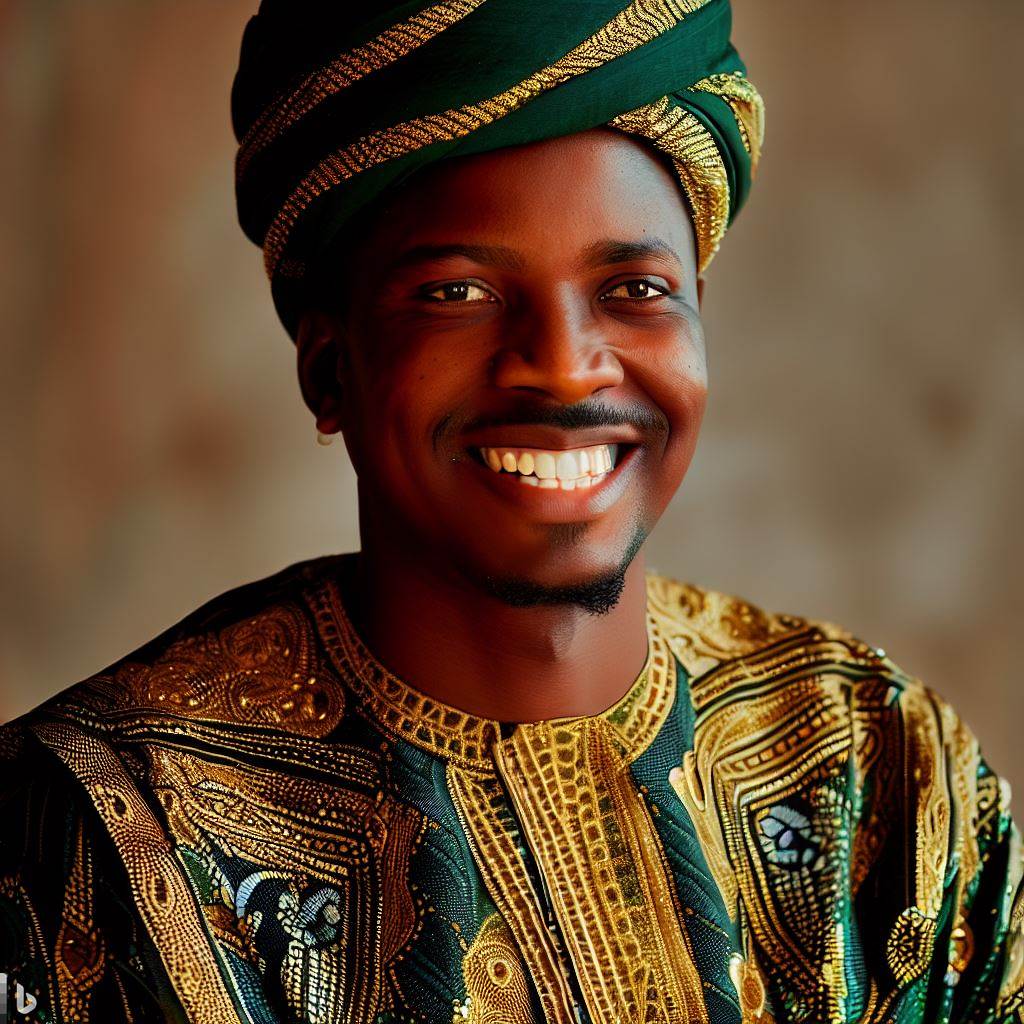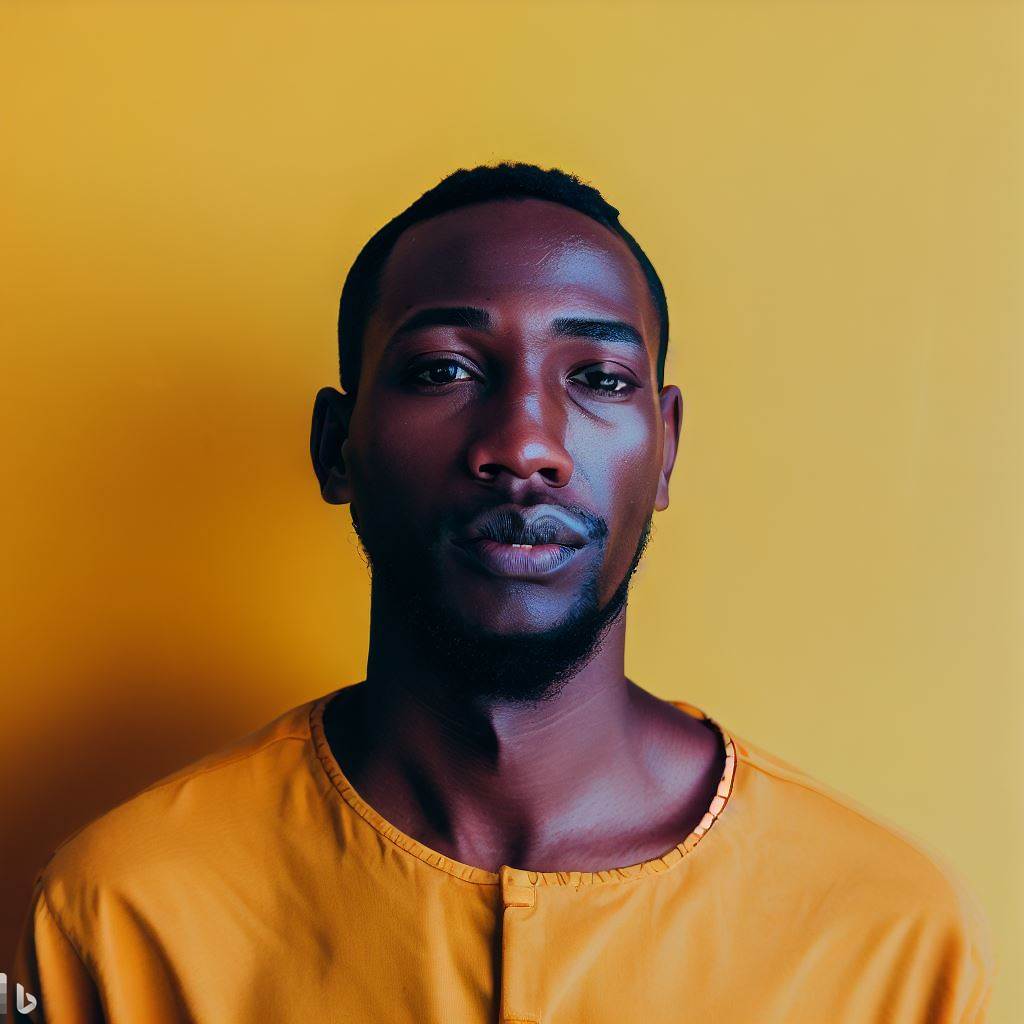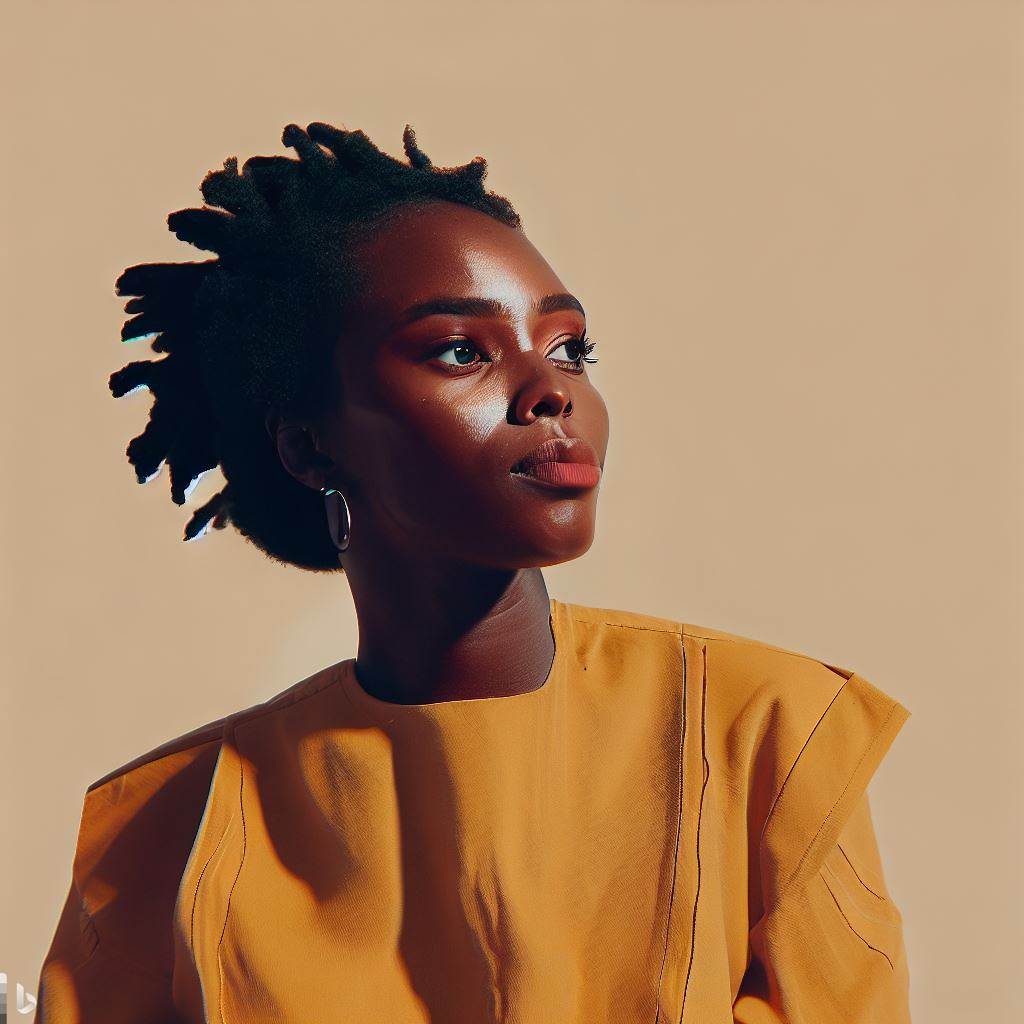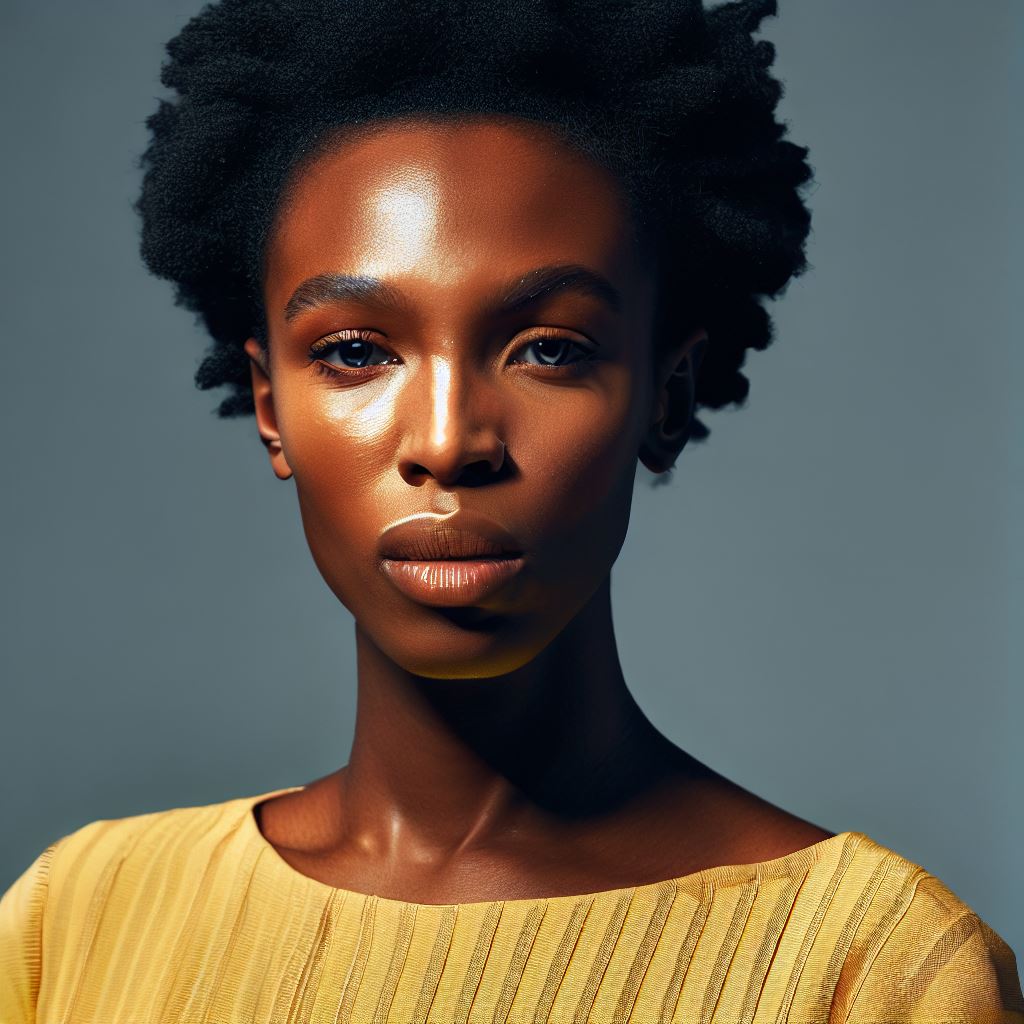Introduction
Let’s explore Nigeria Soft Power in African Fashion.
Soft power in relation to fashion refers to the ability to influence and attract through style and clothing choices.
Nigeria holds significant influence in African fashion with its diverse and vibrant design traditions.
Nigeria’s costume design plays a crucial role in projecting soft power, showcasing the nation’s cultural richness and creativity.
Soft Power in Fashion
- Soft power is the ability to influence through culture, values, and aesthetics, often more potent than traditional power.
- In fashion, it’s the cultural appeal that can shape perceptions and preferences globally.
Nigeria’s Influence in African Fashion
- Nigeria is a powerhouse of African fashion, known for its vibrant, diverse, and rich clothing traditions.
- Nigerian designers like Deola Sagoe and Mai Atafo have gained international acclaim, showcasing the country’s design prowess.
- Nollywood movies often feature traditional attire, exposing global audiences to Nigeria’s fashion heritage.
- The Ankara fabric, synonymous with Nigerian style, has transcended borders.
Significance of Nigeria’s Costume Design
Nigeria’s costume design plays a pivotal role in projecting soft power for Africa:
- Cultural Diplomacy: It fosters cultural exchange and enhances Nigeria’s global image.
- Economic Influence: Nigerian fashion contributes significantly to the country’s economy and job creation.
- Unity and Identity: It unifies diverse ethnicities and promotes a sense of national and continental pride.
- Global Appeal: Nigeria’s fashion influences trends and attracts a global following.
In the world of fashion, Nigeria’s costume design wields the soft power that bridges cultures, economies, and hearts.
Historical Context of Nigerian Costume Design
Tracing back the heritage of Nigerian fashion
- Nigerian costume design has a rich heritage that dates back centuries.
- Traditional Nigerian fashion draws inspiration from diverse ethnic groups and their distinct styles.
- Indigenous techniques and craftsmanship have been passed down through generations, contributing to the uniqueness of Nigerian fashion.
Traditional clothing styles and materials
- Nigerian traditional clothing styles vary across regions and ethnic groups.
- Fabrics like Aso-oke, Adire, and Ankara have played a significant role in Nigerian costume design.
- Each fabric carries its own cultural significance and contributes to the overall visual aesthetic of Nigerian fashion.
Role of costume design in cultural expression and identity
- Costume design in Nigeria goes beyond mere fashion; it is a form of cultural expression.
- Traditional clothing plays a pivotal role in communicating one’s ethnic identity and heritage.
- Nigerian costume design also serves as a means of storytelling, preserving history, and connecting with ancestral roots.
Basically, the historical context of Nigerian costume design reveals its profound significance in African fashion.
Tracing back its heritage, exploring traditional clothing styles and materials, and understanding its role in cultural expression and identity, showcase Nigeria’s soft power in the fashion world.
Nigerian costume design not only represents the country’s diverse ethnic groups but also serves as a form of storytelling and connection to ancestral roots.
By embracing and promoting Nigerian fashion, we celebrate the beauty, craftsmanship, and cultural richness of this vibrant nation.
Read: Challenges Faced by Costume Designers in Nigeria Today
Nigeria’s Impact on African Fashion Industry
Rising prominence of Nigerian fashion designers
- Nigeria boasts a plethora of notable fashion designers who have made significant contributions to the industry.
- These talented designers include the likes of Lisa Folawiyo, Deola Sagoe, and Mai Atafo, among others.
- Their unique designs, innovative techniques, and attention to detail have garnered international acclaim.
- Nigerian fashion designers have captivated the global fashion scene, showcasing the country’s rich cultural heritage.
Influence of Nigerian celebrities on fashion trends
- Nigerian actors and musicians have emerged as influential fashion icons in recent years.
- Actors like Genevieve Nnaji and musicians like Tiwa Savage have become style inspirations for many.
- These celebrities often don exquisite Nigerian apparel on red carpets and public appearances, setting trends.
- Their promotion of Nigerian fashion globally has increased the demand for Nigerian clothing brands.
Nigeria wields substantial influence in African fashion, driven by:
- Rising prominence of Nigerian fashion designers.
- Influence of Nigerian celebrities, especially actors and musicians.
- Merging traditional Nigerian elements with contemporary trends by renowned designers like Lisa Folawiyo, Deola Sagoe, and Mai Atafo.
- Their intricate designs, craftsmanship, and attention to detail garner global recognition.
- Celebrities like Genevieve Nnaji and Tiwa Savage serve as fashion icons.
- Their impeccable style and support for Nigerian fashion brands inspire fans worldwide.
- Global demand for Nigerian clothing brands rises due to celebrity endorsements.
- Nigeria’s soft power in African fashion continues to grow, shaping the industry’s future.
Nigerian fashion designers and celebrities not only promote their creativity but also elevate Nigeria’s influence in African fashion on a global scale.
Read: Modern Trends in Interior Designing: Nigeria’s Perspective
Uniqueness of Nigerian Costume Design
Fusion of traditional and contemporary elements
- Incorporation of traditional motifs and patterns.
- Modern adaptations and innovative designs.
Utilization of vibrant colors and expressive fabrics
- Significance of bright colors in Nigerian culture.
- Popular fabric choices and their cultural symbolism.
Nigerian costume design uniquely merges traditional and contemporary elements, creating a fashion language that respects tradition and embraces modernity. Key aspects:
- Vibrant colors symbolize joy, celebration, and cultural diversity.
- They enhance the visual appeal and cultural significance of garments.
- Fabric choices like adire, aso oke, and ankara carry cultural symbolism.
- Adire showcases Nigeria’s artistic heritage through hand-dyed resist techniques.
- Aso oke, woven by the Yoruba people, features intricate patterns for ceremonial attire.
- Ankara’s versatility and vibrant wax prints capture Nigeria’s essence.
- Incorporating these fabrics celebrates Nigeria’s cultural heritage.
- The use of vibrant colors and expressive fabrics is a form of self-expression and cultural pride.
Nigerian costume designers bridge the gap between tradition and modernity, contributing to the nation’s soft power in African fashion.
Read: Tips for Aspiring Photographers: Building a Portfolio in Nigeria
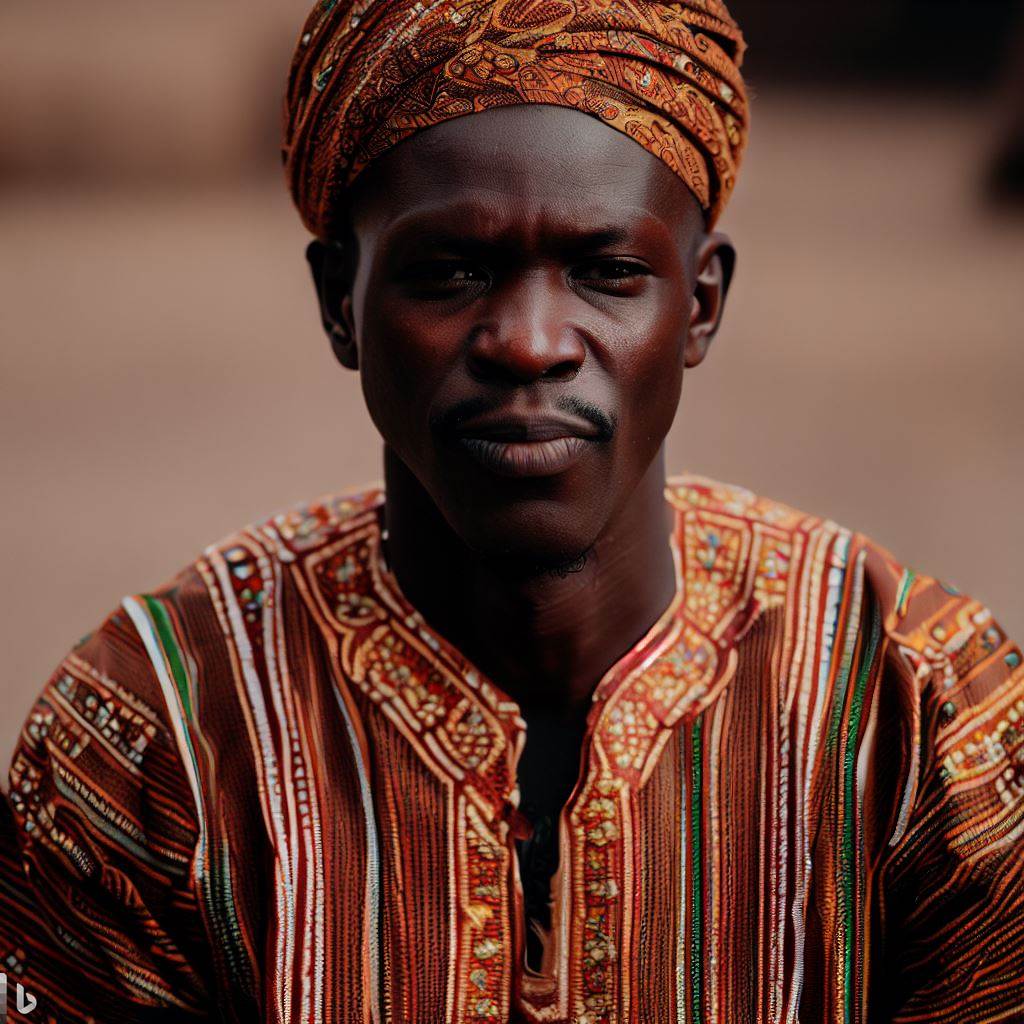
Nigerian Costume Design as Soft Power
Definition and explanation of soft power
Soft power refers to a country’s ability to influence others through non-coercive means, such as culture, values, and ideals.
Demonstrating Nigeria’s soft power through costume design
- Cultural diplomacy and international perception: Nigerian costume design serves as a form of cultural diplomacy, showcasing the rich heritage and diversity of the country. Through costume design, Nigeria projects a positive image to the international community, shaping their perception of the country.
- Fashion as a platform for showcasing Nigerian talent and creativity: Nigeria’s costume design industry provides a platform for talented individuals to display their creativity and artistic skills. By promoting homegrown designers, Nigeria establishes itself as a hub for fashion and artistic innovation.
- Economic implications and contribution to soft power: The success of Nigerian costume design contributes to the country’s economy, creating jobs and generating revenue.Internationally acclaimed designs attract tourists, further boosting Nigeria’s soft power and economic growth.
Read: A Guide to Event Photography in Nigeria’s Bustling Cities
Find Out More: Continuing Education for Graphic Designers in Nigeria: Options
Challenges and Future Outlook
Addressing the challenges faced by Nigerian costume designers
- Limited access to resources and funding for costume design projects.
- Lack of recognition and support from local fashion institutions and organizations.
- Difficulty in sourcing high-quality materials locally for costume creation.
- Limited platforms and opportunities for Nigerian costume designers to showcase their work.
- Need for more comprehensive training programs and educational initiatives for costume designers in Nigeria.
- Overcoming the perception that costume design is just a traditional craft rather than a form of art.
Potential for growth and expansion in the global fashion industry
- Embracing technology and digital platforms to reach a wider audience and expand market reach.
- Collaborating with international fashion brands and designers to gain exposure and access international markets.
- Leveraging Nigeria’s rich cultural heritage and diverse costume traditions to create unique fashion identities.
- Developing strong marketing and branding strategies to position Nigerian costume design as a sought-after commodity.
- Investing in research and development to stay ahead of global fashion trends and maintain relevance.
- Building and nurturing relationships with fashion influencers, celebrities, and media outlets to increase visibility.
Need for sustainable practices and ethical fashion in Nigeria’s costume design
- Promoting eco-conscious sourcing and production practices to minimize environmental impact.
- Ensuring fair wages and safe working conditions for costume designers and garment workers.
- Educating consumers about the importance of supporting ethical fashion and the positive impact it has on communities.
- Encouraging the use of recycled and upcycled materials in costume design to reduce waste and promote circular fashion.
- Engaging in partnerships and collaborations with NGOs and sustainability organizations to drive change and inspire others.
- Embracing transparency and accountability in the supply chain to build trust and credibility with consumers.
Essentially, Nigerian costume designers face various challenges, such as limited resources and recognition, but there is immense potential for growth and expansion in the global fashion industry.
By addressing these challenges and adopting sustainable practices, Nigeria’s costume design industry can not only thrive but also become a leading force in the fashion world.
It is crucial to invest in training, access international markets, and prioritize ethical fashion to ensure a successful future for Nigerian costume design.
Conclusion
Recap of the main points discussed
- Nigeria’s rich cultural heritage and diverse ethnic groups contribute to its unique costume design.
- Nigerian designers combine traditional techniques with contemporary styles, creating a fusion of modern and traditional fashion.
- Costume design plays a significant role in projecting Nigeria’s soft power and promoting African fashion on a global scale.
Reiteration of Nigeria’s significant role in African fashion
Nigeria has emerged as a vibrant hub for African fashion, with its designers pushing boundaries and making bold statements.
Final thoughts on the future prospects of Nigerian costume design in projecting soft power
With the growing recognition and appreciation for African fashion, Nigerian costume design is poised for further global influence.
As Nigeria continues to invest in its fashion industry, supporting emerging designers and promoting cultural heritage, it has the potential to become a powerhouse of soft power in African fashion.
The creativity, craftsmanship, and innovation displayed by Nigerian designers will continue to captivate audiences worldwide, solidifying Nigeria’s position as a leader in the African fashion scene.

